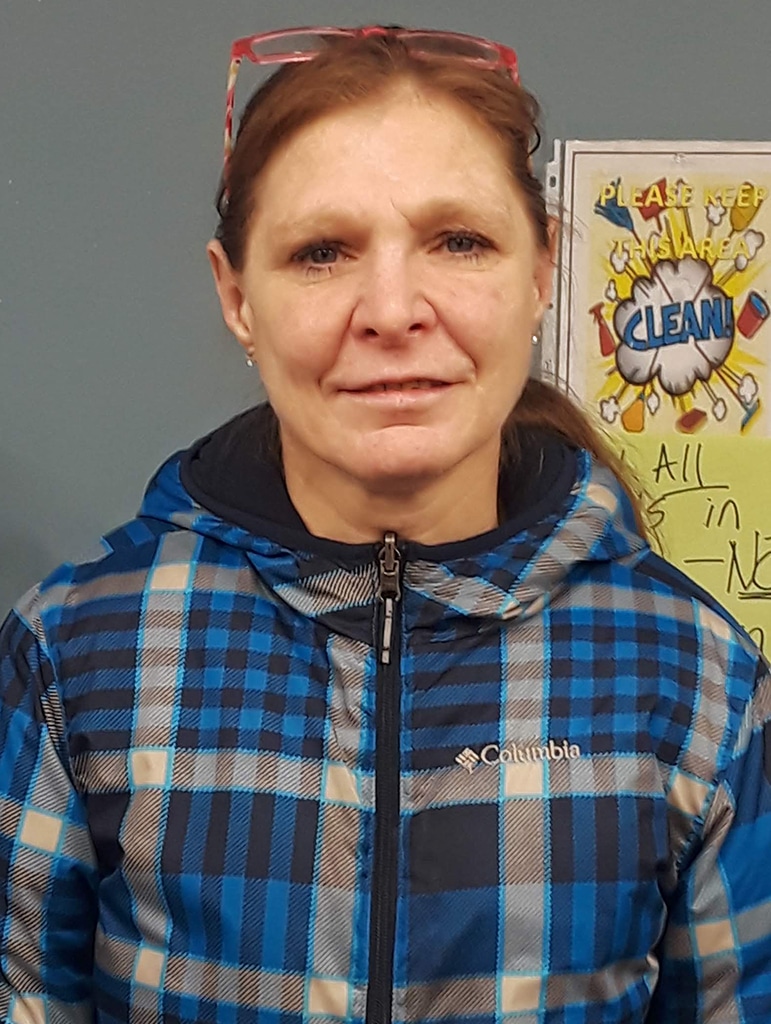 Amy has been trying to find a path to put her life back together. The 48-yr-old had just left rehab for substance use, and her service coordinator helped her find housing at Wood Street Commons. Before that, she was homeless, either living in a tent or living with a very abusive man. “For this place I am so grateful.”
Amy has been trying to find a path to put her life back together. The 48-yr-old had just left rehab for substance use, and her service coordinator helped her find housing at Wood Street Commons. Before that, she was homeless, either living in a tent or living with a very abusive man. “For this place I am so grateful.”
She has a number of mental health issues, including depression and major anxiety. Amy enjoys working, but her anxiety makes it difficult for her to hold down a job.
“I can’t handle anything high stress like fast food; my nerves get frazzled easily. I prefer dishwashing. I steer clear of fast food, not because of the minimum wage — I’d be fine with minimum wage, that’s not the issue. Dishwashing is just easier on my nerves. And then when they have me sweep and mop that’s simple.”
She had tried to get Social Security Disability Insurance (SSDI), before, but found the process too difficult. Depending on how obvious a person’s medical condition is, applying for disability is ridiculously hard. Even those with medical documentation are routinely denied, dragging out the application process for months or years. Applicants typically have to file an appeal to get a hearing and an official determination, and often need a lawyer or other types of assistance to help them navigate the lengthy and confusing process.
Doing all that alone is challenging for anyone, let alone someone with mental health issues. And it’s nearly impossible for someone with a disability who also has lacks access to transportation, a reliable phone, or a permanent mailing address — someone like Amy. She is one of the people the General Assistance (GA) program was created for: people with disabilities that need assistance though they can’t or haven’t yet been able to get through the hurdles of the Social Security system.
And besides, Amy wants to work.
When she was receiving GA, she used the money she received for basic living needs. When Pennsylvania stopped providing General Assistance in 2012, essentials like medical care and transportation became unaffordable. During periods where she was without income, Amy was forced to make difficult, and sometimes dangerous, decisions in order to survive.
“I lost my independence,” Amy explained. Unable to work because of her disability, she had to rely on her ex, who “had a crack cocaine problem, so he was never a good provider. We would have to move every 3 to nine months because he wouldn’t pay the rent.”
In addition to substance abuse issues, her ex was also occasionally abusive. After she left him, Amy stayed with an acquaintance of a friend who “would toss me out every once in a while. She had a temper.”
Homeless, and not wishing to rely on sex work for income, Amy panhandled for money to keep herself alive. Amy was eventually connected with Wood Street Commons, where she can stay safely while looking for a job that she can manage with her disability.
Although she has supports, there are some things she still struggles to access. “I haven’t had any income for years so I can’t pay for the bus. I’ve had to walk to Mercy, which isn’t so bad, but I have had this horrible cold. Once I get there they take care of me, but I have to walk there.”
For Amy, General Assistance means stability, independence and a way out of abusive situations. In Amy’s words, “[General Assistance] helps people to live. To survive. Things we need. Basic transportation, food, clothing.”
Individuals like Amy have experienced how just $205 a month can make a substantial difference in the life of someone with a disability, or needs support while trying to lift themselves out of a dangerous situation. We’ll need to make sure this support continues.
How You Can Help
![]() Join us on Monday, November 25 to help move forward a bill to replace the terminated General Assistance program with an Emergency Relief Fund. It will help fill the gap for desperate Pennsylvanians!
Join us on Monday, November 25 to help move forward a bill to replace the terminated General Assistance program with an Emergency Relief Fund. It will help fill the gap for desperate Pennsylvanians!




No comments yet.